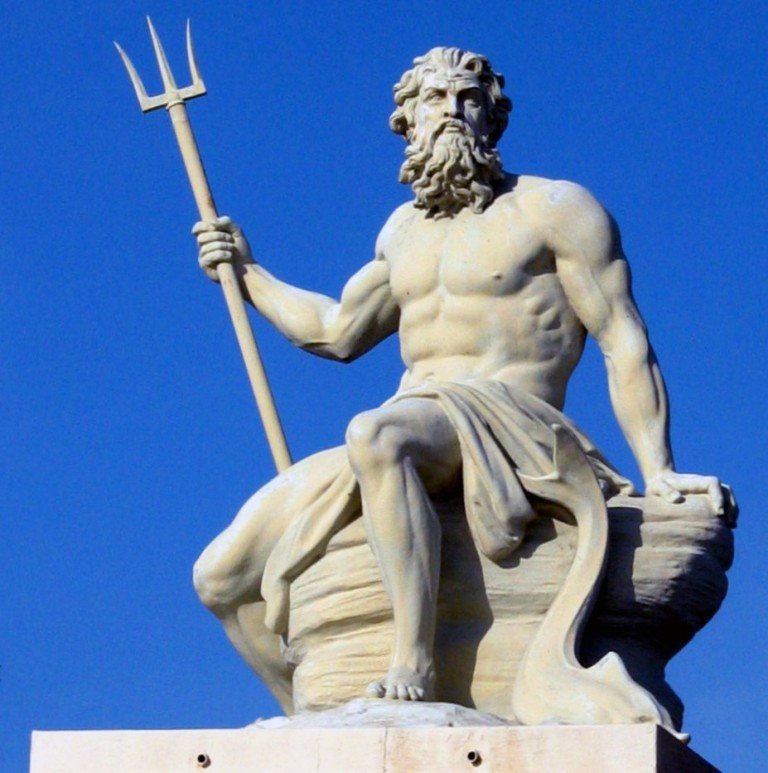From the beginning, man has tried to explain what happens around him, such as the transition from day to night, why the seasons change, why it rains, why there is sun, how Europe is created (there is a Greek myth about this).

The human being needs to know the reason for everything that happens to himself and his environment. For this, already in Antiquity it used legends and myths that were passed from generation to generation orally. Later he went on to capture it in drawings, sculptures and, later, in writings.
One of the questions that man has always asked himself is where do I come from? how was i born Hence, he thought of a father god who was the creator of everything, but to whom he associated other gods who were his brothers, partners or children. This is how the figure of Kronos was born in Greek mythology and the figure of Saturn in Roman mythology. They were the origin of the known world and of the gods to whom they attributed certain qualities. For example, in the Greek case Zeus was the father of gods and men, and in Rome his name was Jupiter.
Let us bear in mind that the Romans borrowed many things from the Greeks, such as their architectural art or mythological gods, although they were not the only ones from whom they borrowed ideas, for example, they also took good note of Egyptian and Etruscan culture, as well as the Sabines and Albanians who lived on the Italian peninsula. The Etruscans took the Hellenic gods and the Romans took them from the Etruscans. From the father god to the gods of the lares, the Romans took it all with them when they defeated the Etruscans in 1280 BC. of C.
For the Greek gods, man was insignificant, but unlike other ancient gods, his image is human.
What do you need to differentiate the Greek gods and the Roman gods?
- Have a little knowledge of the way of life of the Greeks and Romans, since mythology explains their daily life and concerns.
Instructions to differentiate the Greek gods and the Roman gods
The name of the gods
- The first obvious difference is the name of the gods, although the base was practically the same. Next we leave the list of the main gods of both cultures. First we will give the Greek name and then the Roman.
- Zeus vs. Jupiter. Both are related to heaven, light, universal domination and being the ruler of the kingdom of the gods. Zeus is also the god of lightning and nature. He had influence so that you had a good or bad day.
- Hera vs. Juno. She is wife and sister at the same time of the father of the gods. She manifests herself in a very similar way in both cultures. She goddess of marriage, as well as protector of married women. She was known for her vengeful nature due to Zeus’ infidelities.
- Poseidon vs Neptune. His domains are the sea and he is in charge of marine life.
- Demeter vs. Ceres. Dominion of life and nurturers of the harvest. Although they differ in attributes and history.
- Apollo vs. Apollo. He retains the same Greek name, he is the god of law, beauty, poetry, art and divination.
- Artemis vs. Diana. Take care of hunting, youth, the virginity of women and the birth of children. Twin sister of Apollo. She is always depicted with bows and arrows.
- Hermes vs Mercury. The messenger of the gods. Trade protector.
- Athena vs Minerva. She has the patronage of wisdom, war and righteous justice.
- Hephaestus vs Vulcan. They are equal. Both are the lords of fire. He made the weapons, jewelry, and armor for the gods.
- Aphrodite vs. Venus. She is the goddess of love.
- Ares vs. Mars. God of virile strength, love and war.
- Dionysus vs Bacchus. It has the same meaning. Drunkenness and orgies hence the name after bacchanalia. Renewal of both plant and human life.
- Hades vs. Pluto. God of the underworld or underground world.
Other differences
- The second difference is, as we indicated at the beginning of this article, the different era. The Roman gods are later (year 12 or 753 BC) compared to 2000 BC that is estimated to date from Greek mythology.
- The Greek gods were human-shaped and beautiful, a characteristic later copied by the Romans.
- The Roman gods do not have everyday stories like the Greeks, they would copy it later trying to link the Roman gods with the founders of Rome. By way of example, the she-wolf, the Roman symbol par excellence, was actually a statue of an Etruscan model to which the figures of Romulus and Remus would be incorporated years later.
- The Greek gods are autochthonous, while the Roman ones are borrowed from other cultures, especially Hellenic.
Tips to differentiate the Greek gods and the Roman gods
- It must be taken into account that both the Greek gods and the myths that surround them are from oral tradition. It took many years to write down the story. Some historians have the theory that the one who compiled it was Homer back in the year 750 BC and others that it was Hesiod with his Theogony, where the origin of the gods is explained. For their part, the Romans start from the literary and the foreign.
